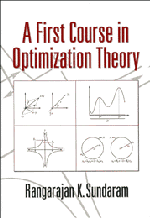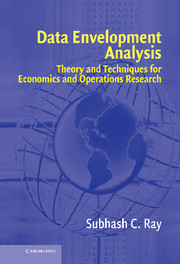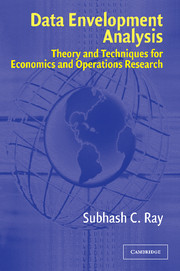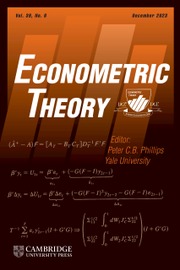A First Course in Optimization Theory
This book, first published in 1996, introduces students to optimization theory and its use in economics and allied disciplines. The first of its three parts examines the existence of solutions to optimization problems in Rn, and how these solutions may be identified. The second part explores how solutions to optimization problems change with changes in the underlying parameters, and the last part provides an extensive description of the fundamental principles of finite- and infinite-horizon dynamic programming. Each chapter contains a number of detailed examples explaining both the theory and its applications for first-year master's and graduate students. 'Cookbook' procedures are accompanied by a discussion of when such methods are guaranteed to be successful, and, equally importantly, when they could fail. Each result in the main body of the text is also accompanied by a complete proof. A preliminary chapter and three appendices are designed to keep the book mathematically self-contained.
- Best integrated text on optimization theory currently available
- Ideal as core text in graduate/master's-level courses on mathematics for economists, can also be used to teach master's-level mathematics courses to students in politics, government, finance, business, and operations research
- Balances depth and breadth: competing texts are either too elementary or too rigorous and comprehensive
- Questions at the end of each chapter
Reviews & endorsements
'… the book is an excellent reference for self-studies, especially for students in business and economics.' H. Noltemeier, Würzberg
Product details
October 1996Hardback
9780521497190
376 pages
254 × 178 × 22 mm
0.87kg
11 b/w illus.
Available
Table of Contents
- 1. Mathematical preliminaries
- 2. Optimization in Rn
- 3. Existence of solutions: the Weierstrass theorem
- 4. Unconstrained optima
- 5. Equality constraints and the theorem of Lagrange
- 6. Inequality constraints and the theorem of Kuhn and Tucker
- 7. Convex structures in optimization theory
- 8. Quasi-convexity and optimization
- 9. Parametric continuity: the maximum theorem
- 10. Supermodularity and parametric monotonicity
- 11. Finite-horizon dynamic programming
- 12. Stationary discounted dynamic programming
- Appendix A. Set theory and logic: an introduction
- Appendix B. The real line
- Appendix C. Structures on vector spaces
- Bibliography.





